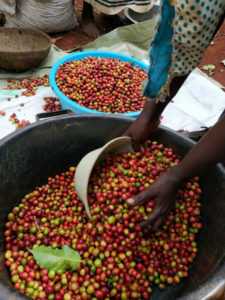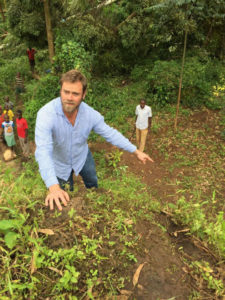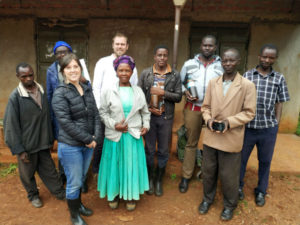For a project focusing on developing value chain innovation platforms to improve food security in East and Southern Africa, funded by Australian Centre for International Agricultural Research (ACIAR), GFAR researchers Dr. Daniel Gregg and Prof. Randy Stringer are currently in Uganda. The purpose of the current visit is to run picker contracting experiments and identify efficient methods to assess quality of coffee cherries.

Coffee cherries on the tree

Picked coffee cherries
The cherries often need hours of sorting before they are accepted and even then contain many defective cherries, including aged cherries and increase the labour costs. The aim of the coffee picker contracting experiments is to find labour contracts, which are efficient, in that they generate incentives for picking high quality cherries only, and fair, in that they provide pickers with more income than in the normal case. Dr. Gregg says that the season is late this year so the experiment needs to be changed to ensure it can capture important data allowing to implement for and efficient labour contracts for picking of to-grade coffee cherries.

Dr. Daniel Gregg during field work
There are two approaches to labour contracting. The conditional contract approach is incentivising pickers to pick ripe red cherries. The unconditional one generates similar picking patterns to the normal in the area, with many unripe, over-ripe and damaged cherries. To enable identification of good quality coffee cherries so that the labour can be incentivised, the research team is also currently developing a prototype coffee cherry quality assessment table in Kapchorwa. This will enable efficient and robust assessment of coffee cherries at the washing station without the use of extensive physical labour.

The research team with coffee growers
A key collaborator on this project is Monastery Coffee, a small batch, speciality coffee roaster based in Adelaide. The idea behind this collaboration is to link coffee growers in Uganda to the high-end markets in countries like Australia. The result has been introduction of a speciality grade coffee in the Australian market through Monastery Coffee which is being made possible by assisting the Ugandan farmers by implementing programs to improve production and labour efficiency.

